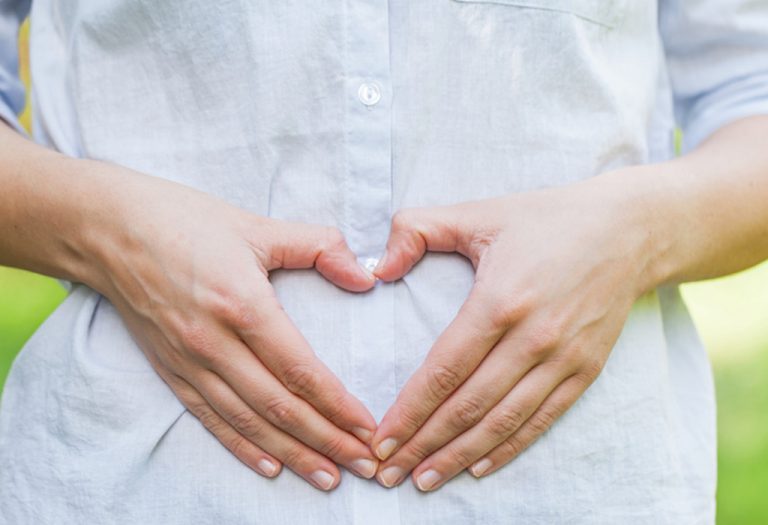12 Uncommon Signs & Symptoms of Pregnancy

When you’ve decided to have a baby, signs and symptoms of pregnancy are much awaited and often closely monitored. Common pregnancy symptoms such as missed periods, morning sickness, and sore breasts are well-known, but there are also several uncommon or unusual pregnancy symptoms that can signal you’re expecting. These lesser-known signs might include changes in taste or smell, frequent headaches, or even mood swings that seem out of the ordinary. Some women also experience nasal congestion, dizziness, or a metallic taste in their mouth. If you’re intrigued to learn more about these unusual pregnancy symptoms and how they might manifest, we suggest you read this article for a deeper understanding of what to expect during early pregnancy.
12 Unusual Pregnancy Signs and Symptoms
The human body is a complex system, and pregnancy brings many changes to it. Thus, as soon as you become pregnant, your body starts showing specific symptoms. Sometimes pregnant women tend to show strange signs of pregnancy. So, if you notice any of these happening to you, it could be the sign of a tiny being growing inside you.
1. Insomnia or Reduced Sleep
If you’re finding it difficult to go to sleep at bedtime or waking up at night, it may be a hint that you’re pregnant (1). We suggest that you stay calm and relaxed, exercise and reduce your caffeine intake to get better sleep.
How to Get Relief
To alleviate insomnia or sleep disturbances during pregnancy, try practicing relaxation techniques like deep breathing or meditation before bed. Creating a comfortable sleep environment by keeping your room cool, dark, and quiet can also help. Additionally, avoid screen time at least an hour before sleeping to reduce mental stimulation and promote better rest.
2. Nasal Stuffiness or Bleeding From the Nose
As strange as it may sound, some pregnant women experience nasal stuffiness or nose bleeding early into pregnancy (2). This may occur due to lack of moisture in the body. You can either use natural remedies to provide moisture or talk to your doctor about it.
How to Get Relief
For relief from nasal stuffiness or nosebleeds, stay hydrated by drinking plenty of water throughout the day. Using a humidifier in your bedroom can help maintain moisture in the air, preventing dryness in your nasal passages. Avoid blowing your nose too hard to prevent further irritation, and consider using saline sprays for additional comfort.
3. Excessive Passing of Gas
If you’re feeling all gassy and bloated, it may be a sign of pregnancy. Yes, it’s possible! Pregnancy takes a toll on your gastrointestinal tract and leads to gas (3). If you’re burping more than usual and it’s not because of something you’ve eaten, you should get a pregnancy kit and check for yourself. Stay away from gas-inducing foods to avoid putting your stomach under too much distress.
How to Get Relief
To manage excessive gas during pregnancy, eat smaller, more frequent meals to aid digestion. Incorporating probiotics like yogurt into your diet can promote gut health and reduce bloating. Taking short walks after meals can also stimulate digestion and help alleviate discomfort caused by gas buildup.
4. Increased Vaginal Discharge
Vaginal discharge is normal during pregnancy, and if you notice that it has increased of late, it may be an indication that you’re pregnant (4). However, if your vaginal discharge is foul-smelling or has a changed colour than before, it’s best to consult your gynaecologist.
How to Get Relief
To manage increased vaginal discharge, wear breathable cotton underwear to reduce moisture buildup and prevent irritation. Avoid using scented products or douches in the vaginal area, as they can disrupt the natural balance. Maintaining proper hygiene by washing with mild, unscented soap can also help keep you comfortable.
5. Changed Bowel Movements
Pregnancy hormones tend to make the organs slow and sluggish. So, a change in bowel movements is also a sign of pregnancy, though an uncommon one. Slower functioning intestines mean difficulty in passing stools and, thus, constipation. We recommend that you add a lot of fibre to your diet and drink adequate water to keep your bowel movements smooth.
How to Get Relief
To relieve constipation or irregular bowel movements, include fiber-rich foods like fruits, vegetables, and whole grains in your diet (5). Staying hydrated by drinking at least 8-10 glasses of water daily can also help soften stools. Engaging in light exercises like walking or prenatal yoga can stimulate digestion and promote regular bowel movements.
6. Metal Taste in the Mouth
This is a weird sign of pregnancy. Some pregnant women feel that they’re chewing on something made of metal. This occurs due to the surge in estrogen and progesterone in the body and is called dysgeusia (6). It’s a condition which leads to a distortion of the sense of taste. You can relieve this by sipping on cold drinks, eating sugarless gum products or even trying out some spicy food.
How to Get Relief
To alleviate the metallic taste in your mouth, rinse your mouth with a mild saltwater solution to refresh your palate. Snacking on citrus fruits like oranges or lemons can also help counteract the metallic sensation. Avoid using metallic utensils and opt for plastic or wooden ones instead to minimize the taste.
7. Heartburn
Pregnancy hormones affect the valve between the oesophagus and the stomach, causing leakage of stomach acid into the oesophagus and further leading to heartburn (7). You can reduce the severity by consuming small and regular meals. Refrain from eating heavy, spicy and fatty food items and caffeinated and aerated beverages.
How to Get Relief
To reduce heartburn during pregnancy, eat small, frequent meals and avoid lying down immediately after eating. Sleeping with your head elevated can prevent stomach acid from leaking into the esophagus. Drinking a glass of milk or eating a few almonds can also help neutralize stomach acid and provide relief.
8. False Period
Experiencing bleeding even when the period isn’t due may be another sign of pregnancy. Bleeding happens when the implantation process takes place, that is, when the embryo attaches itself to the uterine lining. However, sometimes a false period could be a sign of ectopic pregnancy, cervical irritation or other pregnancy-related complications (8). Get immediate medical help if you experience heavier bleeding, a piercing backache, excessive cramping or other such unusual symptoms.
How to Get Relief
If you experience light bleeding or spotting, rest and avoid strenuous activities to allow your body to recover. Use a panty liner to monitor the amount and color of the discharge, and stay hydrated to support your body during this time. If the bleeding is heavy or accompanied by severe pain, seek medical attention immediately.
9. Changes in the Breasts
If your breasts have started becoming bigger and you’ve also been experiencing breast tenderness or soreness, it’s probably good news. The areola or the dark part around the nipples may also become darker for some pregnant women. This happens because the body prepares for breastfeeding (9).
How to Get Relief
To relieve breast tenderness or soreness, apply a warm or cold compress to soothe the discomfort. Wearing a well-fitted, supportive bra can also help reduce pain and provide additional comfort. Gently massaging your breasts with coconut or olive oil can improve circulation and alleviate soreness.
10. Changes in Libido
Pregnancy does all sorts of weird things to your body, so changes in your libido are also possible. Some women who’re carrying a tiny one may show a drastic rise, while others may see a considerable fall in their sex drive (10). However, this is normal and shouldn’t cause any worry or concern.
How to Get Relief
To manage changes in libido, communicate openly with your partner about your feelings and needs. Engaging in activities that help you relax and reduce stress, such as reading or listening to music, can also improve your mood. If you have concerns about sexual activity during pregnancy, consult your doctor for guidance.
11. Frequent Headaches
Headaches are a lesser-known pregnancy symptom caused by hormonal changes, increased blood volume, or stress (11). Staying hydrated and getting enough rest can help reduce their frequency.
How to Get Relief
To relieve frequent headaches, apply a cold or warm compress to your forehead for immediate relief. Practicing relaxation techniques like yoga or meditation can help reduce stress, which may be contributing to the headaches. Avoiding triggers like bright lights or loud noises can also help prevent headaches from occurring.
12. Skin Changes
Pregnancy can lead to various skin changes, such as acne, dark patches (melasma), or a pregnancy glow. These occur due to hormonal fluctuations and increased blood flow (12).
How to Get Relief
To manage skin changes like acne or dark patches, use gentle, pregnancy-safe skincare products to avoid irritation. Staying hydrated and maintaining a healthy diet can promote glowing skin and reduce breakouts. Wearing sunscreen daily can also prevent dark patches from worsening due to sun exposure.
When to Call a Doctor
While many uncommon pregnancy symptoms are normal and harmless, some may indicate underlying complications that require medical attention. It’s important to stay vigilant and consult your healthcare provider if you experience any of the following:
- Severe Itching – Persistent itching, especially on the palms and soles, could indicate cholestasis of pregnancy.
- Blurry Vision or Eye Floaters – Sudden vision changes might be a sign of preeclampsia.
- Severe Headaches – Frequent or intense headaches that don’t improve with rest may indicate high blood pressure.
- Persistent Leg Swelling or Pain – Unusual swelling in one leg or pain while walking could signal a blood clot.
- Unexplained Weight Loss – Losing weight instead of gaining can indicate nutritional deficiencies or other complications.
- Continuous Dizziness or Fainting – Could be a sign of anemia, dehydration, or low blood sugar.
- Persistent Vomiting Beyond the First Trimester – Severe nausea and vomiting (hyperemesis gravidarum) can lead to dehydration.
- Sharp Abdominal or Shoulder Pain – May indicate an ectopic pregnancy or placental issues.
- Sudden Decrease in Baby’s Movements – If baby’s kicks reduce significantly, immediate medical advice is needed.
- Burning Sensation While Urinating – Could be a sign of a urinary tract infection (UTI) or kidney infection.
FAQs
1. Can unusual symptoms affect the baby’s health?
Most unusual pregnancy symptoms, such as heartburn, nasal congestion, or mood swings, do not directly affect the baby’s health. However, symptoms like severe dehydration, high fever, or reduced fetal movement could pose risks. Always consult your doctor if you’re unsure about any symptom’s impact on your baby.
2. Are uncommon pregnancy symptoms the same for everyone?
No, odd signs of pregnancy can vary widely from person to person. Some women may experience unusual symptoms like a metallic taste in the mouth or nasal congestion, while others may not. Each pregnancy is unique, and symptoms depend on individual hormonal changes and body responses.
3. Why do some pregnant women experience a vibrating or buzzing sensation in the pelvis?
Some women report a strange buzzing or vibrating feeling in their pelvic area, possibly caused by nerve compression or increased blood flow to the uterus.
The human body is very complex, and when any change takes place, signals are noticeable. As soon as you get pregnant, your body starts showing all strange pregnancy symptoms that act as cues. As soon as you register any of the common or uncommon pregnancy symptoms, we suggest that you take a pregnancy test or meet your doctor to confirm the good news and have a healthy pregnancy and childbirth.
References/Resources:
1. Pregnancy Insomnia Cleveland Clinic
3. American Pregnancy Association – Pregnancy Gas
4. NHS – Vaginal discharge in pregnancy
6. American Pregnancy Association – Dysgeusia Symptoms and Remedies
7. Cleveland Clinic – Heartburn During Pregnancy
8. Cleveland Clinic – Bleeding During Pregnancy
9. American Pregnancy Association – Breast Changes During Pregnancy
11. NHS – Headaches in pregnancy
12. Johns Hopkins Medicine – Pregnancy and Skin Changes
Also Read:
Symptoms of Twin Pregnancy
Pregnancy Symptoms Come and Go
Pregnancy Signs Before Missed Period
Pregnancy Signs After Missed Period
Was This Article Helpful?
Parenting is a huge responsibility, for you as a caregiver, but also for us as a parenting content platform. We understand that and take our responsibility of creating credible content seriously. FirstCry Parenting articles are written and published only after extensive research using factually sound references to deliver quality content that is accurate, validated by experts, and completely reliable. To understand how we go about creating content that is credible, read our editorial policy here.




































